by Gary Z McGee - fractalenlightenment (<--Editor's note: We LOVE this site!)
“Warriors, warriors we call ourselves. We fight for splendid virtue, for high endeavor, for sublime wisdom, therefore we call ourselves peaceful warriors.” – Aunguttara Nikaya
“The secret of change is to focus all of your energy, not on fighting the old, but on building the new.” This is a quote from a character named Socrates in Way of the Peaceful Warrior by Dan Millman. As it stands, modern day peaceful warriors are utilizing Gar Alperovitz’s concept of “evolutionary reconstruction” as an alternative to revolution.
“Warriors, warriors we call ourselves. We fight for splendid virtue, for high endeavor, for sublime wisdom, therefore we call ourselves peaceful warriors.” – Aunguttara Nikaya
“The secret of change is to focus all of your energy, not on fighting the old, but on building the new.” This is a quote from a character named Socrates in Way of the Peaceful Warrior by Dan Millman. As it stands, modern day peaceful warriors are utilizing Gar Alperovitz’s concept of “evolutionary reconstruction” as an alternative to revolution.

This idea of evolutionary reconstruction helps us to focus our energy on building the new so we can eventually replace the old. While the old system decays and slowly dies around us, we, as evolutionary reconstructing peaceful warriors, can build the new by using the ashes of the old as compost for the garden of the new. We have a choice: learn to live in ashes, or rise like a phoenix. Here are five ways to focus our energy on building the new.
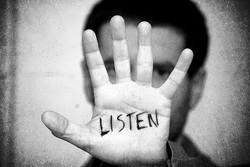
1) Before you act, listen
“What is the cure for hubristic vision? It is, perhaps, to listen –to listen more subtly, more perceptively, more deeply. Our future may well depend upon the precise intent of our willingness to expand our ways of knowing” –Richard Tarnas
Where Peaceful warriors realize they still have use of their hearing, the common man believes he has heard all he needs to hear and has thus lost the use of his hearing. Peaceful warriors listen, or at least attempt to listen, while the common man has no reason for listening at all. The common man is blind to all but what has been culturally injected into him by mass appeal and status-quo vanity. Peaceful warriors listen to nature, using Derrick Jensen’s “language older than words,” but they also listen to the dying whimpers of the old system. And if we listen closely we will discover what is healthy and what is unhealthy about the old way of doing things.
When you get really quiet and listen to the silence, you discover new aspects of yourself longing to speak. The question is: are you willing to listen? Instead of simply asking, “How shall I live my life?” Peaceful warriors also ask the land where they live, the land that supports them, “What can I do to become your ally, to help protect you from this destructive culture? What can we do together to stop this culture from killing you?” If you ask that question, and you truly listen, then the land will tell you what it needs. And then the only real question is: are you willing to do it?
“What is the cure for hubristic vision? It is, perhaps, to listen –to listen more subtly, more perceptively, more deeply. Our future may well depend upon the precise intent of our willingness to expand our ways of knowing” –Richard Tarnas
Where Peaceful warriors realize they still have use of their hearing, the common man believes he has heard all he needs to hear and has thus lost the use of his hearing. Peaceful warriors listen, or at least attempt to listen, while the common man has no reason for listening at all. The common man is blind to all but what has been culturally injected into him by mass appeal and status-quo vanity. Peaceful warriors listen to nature, using Derrick Jensen’s “language older than words,” but they also listen to the dying whimpers of the old system. And if we listen closely we will discover what is healthy and what is unhealthy about the old way of doing things.
When you get really quiet and listen to the silence, you discover new aspects of yourself longing to speak. The question is: are you willing to listen? Instead of simply asking, “How shall I live my life?” Peaceful warriors also ask the land where they live, the land that supports them, “What can I do to become your ally, to help protect you from this destructive culture? What can we do together to stop this culture from killing you?” If you ask that question, and you truly listen, then the land will tell you what it needs. And then the only real question is: are you willing to do it?
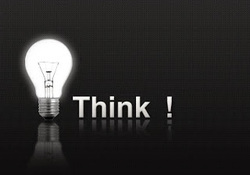
2) Before you react, think
“How can we be receptive to the mind’s riches and not just reactive to its reflexes? How can we direct our thoughts and feelings rather than be driven by them?” –Daniel J. Siegel
Peaceful warriors stand in stark contrast to the common man, not so much in action but in reaction to their capacity for critical thought and spontaneous joy. In a world of dueling dualities –democrat/republican, liberal/conservative, rich/poor, capitalist/communist, black/white, gay/straight– they stand as voices of reason amidst the smoke and mirrors of bipartisan chaos. They are excellent at assessing the big-picture situation, reading between the lines, and utilizing the middle gray before reacting. Like JFK said, “Let us not seek the Republican answer or the Democratic answer, but the right answer.”
It’s easy to get caught up in the right-wing left-wing political claptrap. We’ve all been guilty of it before. But such thinking entrenches us in the old way, and forces us to fight the old. In order to focus on creating the new we have to let go of this outdated method of thinking. Duality is overrated anyway. Building the new asks that we become more holistic in our thinking. Before you react to sociopolitical nonsense, think. You are your own person, an aspect of the system but free to come and go as you choose, with your own capacity for rational thought. Practice being the most authentic version of yourself by remembering to think before you react.
“How can we be receptive to the mind’s riches and not just reactive to its reflexes? How can we direct our thoughts and feelings rather than be driven by them?” –Daniel J. Siegel
Peaceful warriors stand in stark contrast to the common man, not so much in action but in reaction to their capacity for critical thought and spontaneous joy. In a world of dueling dualities –democrat/republican, liberal/conservative, rich/poor, capitalist/communist, black/white, gay/straight– they stand as voices of reason amidst the smoke and mirrors of bipartisan chaos. They are excellent at assessing the big-picture situation, reading between the lines, and utilizing the middle gray before reacting. Like JFK said, “Let us not seek the Republican answer or the Democratic answer, but the right answer.”
It’s easy to get caught up in the right-wing left-wing political claptrap. We’ve all been guilty of it before. But such thinking entrenches us in the old way, and forces us to fight the old. In order to focus on creating the new we have to let go of this outdated method of thinking. Duality is overrated anyway. Building the new asks that we become more holistic in our thinking. Before you react to sociopolitical nonsense, think. You are your own person, an aspect of the system but free to come and go as you choose, with your own capacity for rational thought. Practice being the most authentic version of yourself by remembering to think before you react.
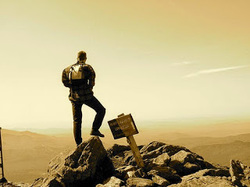
3) Before you challenge the system, challenge yourself
“The revolution begins at home. If you overthrow yourself again and again, you might earn the right to overthrow the rest of us.” –Rob Brezsny
Peaceful warriors are adept at self-interrogation. They understand that the system is made up of people who have given into the system, and that they were once (or still are) one of those people. In order to become an effective agent of change, we must be able to challenge ourselves and our preconditioned assumptions about the way things are. We are all artifacts of the system to some degree or another.
It’s up to us to be responsible enough to figure out what works and what doesn’t, what’s healthy and what’s not, otherwise we are just products of the system, cogs in a cultural clock. Like Mark Twain wrote, “To create man was a fine and original idea; but to add the sheep was a tautology.” Challenging ourselves before attempting to challenge the system is exactly getting back to the “original idea” and letting go of the outdated “sheep” way of living.
“Society demands that you act according to an idea;” wrote Krishnamurti “that is all society knows; that is all that human beings know: conform, imitate, accept, and obey. And when one accepts the edicts of tradition, conforms to the pattern that society has set up then one is part of this whole conditioned human existence that wastes energy through constant conflict, confusion, and misery.” In order to rise above this conditioning, we must be able to recondition the precondition, and we do that through effective self-interrogation.
“The revolution begins at home. If you overthrow yourself again and again, you might earn the right to overthrow the rest of us.” –Rob Brezsny
Peaceful warriors are adept at self-interrogation. They understand that the system is made up of people who have given into the system, and that they were once (or still are) one of those people. In order to become an effective agent of change, we must be able to challenge ourselves and our preconditioned assumptions about the way things are. We are all artifacts of the system to some degree or another.
It’s up to us to be responsible enough to figure out what works and what doesn’t, what’s healthy and what’s not, otherwise we are just products of the system, cogs in a cultural clock. Like Mark Twain wrote, “To create man was a fine and original idea; but to add the sheep was a tautology.” Challenging ourselves before attempting to challenge the system is exactly getting back to the “original idea” and letting go of the outdated “sheep” way of living.
“Society demands that you act according to an idea;” wrote Krishnamurti “that is all society knows; that is all that human beings know: conform, imitate, accept, and obey. And when one accepts the edicts of tradition, conforms to the pattern that society has set up then one is part of this whole conditioned human existence that wastes energy through constant conflict, confusion, and misery.” In order to rise above this conditioning, we must be able to recondition the precondition, and we do that through effective self-interrogation.
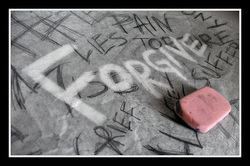
4) Before you accuse, forgive
“To err is human. Yet most of us go through life assuming that we are right about nearly everything. If being wrong is so natural, why are we all so bad at imagining that our beliefs could be mistaken, and why do we react to our errors with surprise, denial, defensiveness, and shame?” –Katheryn Schultz
Peaceful warriors are empaths par excellence. They realize that none of us chose to be born into this unsustainable system. We had no choice in the matter on how we were going to be raised. Some of us experienced trauma and excruciating loss. Life has a way of throwing us for a loop. It’s for these reasons that we should be empathetic to the actions and motivations of others.
Some of us, probably the majority of us, have unhealthy ways of seeing the world. But those of us who are healthy need to be patient with them. We must lead by example, and hope they follow suit. None of this is possible without authentic forgiveness. Those of us who are conscious need to first forgive those who are unconscious before we attempt to teach them consciousness.
Acting with forgiveness is trumping Small Mind, which is petty and personal, with Big Mind, which is holistic and mature. Like Laurence Sterne wrote, “Only the brave know how to forgive. A coward never forgives; it is not in his nature.” But forgiving doesn’t mean we forget, and love does not imply pacifism, so we must be stern and steadfast with our forgiveness.
Give others the room they need to grow and become healthy, but realize that sometimes leading them to knowledge doesn’t necessarily mean they’re going to use it in a healthy way. This is where a consummate patience comes into play. Just be sure to continuously remind them of the wise words of Eliezer Yudkowsky, “You are personally responsible for becoming more ethical than the society you grew up in.”
“To err is human. Yet most of us go through life assuming that we are right about nearly everything. If being wrong is so natural, why are we all so bad at imagining that our beliefs could be mistaken, and why do we react to our errors with surprise, denial, defensiveness, and shame?” –Katheryn Schultz
Peaceful warriors are empaths par excellence. They realize that none of us chose to be born into this unsustainable system. We had no choice in the matter on how we were going to be raised. Some of us experienced trauma and excruciating loss. Life has a way of throwing us for a loop. It’s for these reasons that we should be empathetic to the actions and motivations of others.
Some of us, probably the majority of us, have unhealthy ways of seeing the world. But those of us who are healthy need to be patient with them. We must lead by example, and hope they follow suit. None of this is possible without authentic forgiveness. Those of us who are conscious need to first forgive those who are unconscious before we attempt to teach them consciousness.
Acting with forgiveness is trumping Small Mind, which is petty and personal, with Big Mind, which is holistic and mature. Like Laurence Sterne wrote, “Only the brave know how to forgive. A coward never forgives; it is not in his nature.” But forgiving doesn’t mean we forget, and love does not imply pacifism, so we must be stern and steadfast with our forgiveness.
Give others the room they need to grow and become healthy, but realize that sometimes leading them to knowledge doesn’t necessarily mean they’re going to use it in a healthy way. This is where a consummate patience comes into play. Just be sure to continuously remind them of the wise words of Eliezer Yudkowsky, “You are personally responsible for becoming more ethical than the society you grew up in.”
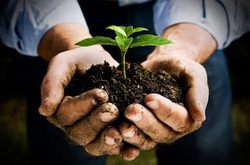
5) While you create, give
“There is nothing noble in being superior to your fellow man; true nobility is being superior to your former self.” –Ernest Hemingway
Who you are is nature’s gift to you; who you become is your gift to nature. Peaceful warriors are focused on creating the new, despite the old. Like a modern day Prometheus they steal fire from the gods and gift it to mortals. We all have this power, a connection to the universe that is unique to us. We each have the capacity to learn from this connection, a particular flavor of knowledge that cannot be gained in any other way than through us. As such, it behooves us all to discover what that knowledge is. And like Prometheus, we must gift our fire to the world. We should do this as we focus on building the new. Giving goes to the gift-giver, and it is an all-around healing process.
One of the most cathartic experiences we can have is found in the act of helping others. We can actually heal ourselves by healing others. The experience gained from past wounds might be exactly what is needed to help someone else who has been similarly wounded. Gift-giving, especially gifting knowledge about how to become conscious in an unconscious world, is critical to building the new. Helping ourselves in order to help others helps the world.
Like Lao Tzu wrote, “If you want to awaken all of humanity, then awaken all of yourself, if you want to eliminate the suffering in the world, then eliminate all that is dark and negative in yourself. Truly, the greatest gift you have to give is that of your own self-transformation.”
“There is nothing noble in being superior to your fellow man; true nobility is being superior to your former self.” –Ernest Hemingway
Who you are is nature’s gift to you; who you become is your gift to nature. Peaceful warriors are focused on creating the new, despite the old. Like a modern day Prometheus they steal fire from the gods and gift it to mortals. We all have this power, a connection to the universe that is unique to us. We each have the capacity to learn from this connection, a particular flavor of knowledge that cannot be gained in any other way than through us. As such, it behooves us all to discover what that knowledge is. And like Prometheus, we must gift our fire to the world. We should do this as we focus on building the new. Giving goes to the gift-giver, and it is an all-around healing process.
One of the most cathartic experiences we can have is found in the act of helping others. We can actually heal ourselves by healing others. The experience gained from past wounds might be exactly what is needed to help someone else who has been similarly wounded. Gift-giving, especially gifting knowledge about how to become conscious in an unconscious world, is critical to building the new. Helping ourselves in order to help others helps the world.
Like Lao Tzu wrote, “If you want to awaken all of humanity, then awaken all of yourself, if you want to eliminate the suffering in the world, then eliminate all that is dark and negative in yourself. Truly, the greatest gift you have to give is that of your own self-transformation.”
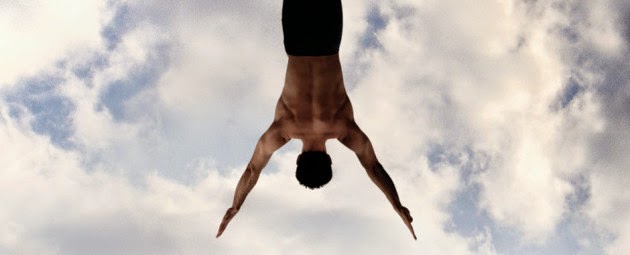
 RSS Feed
RSS Feed
